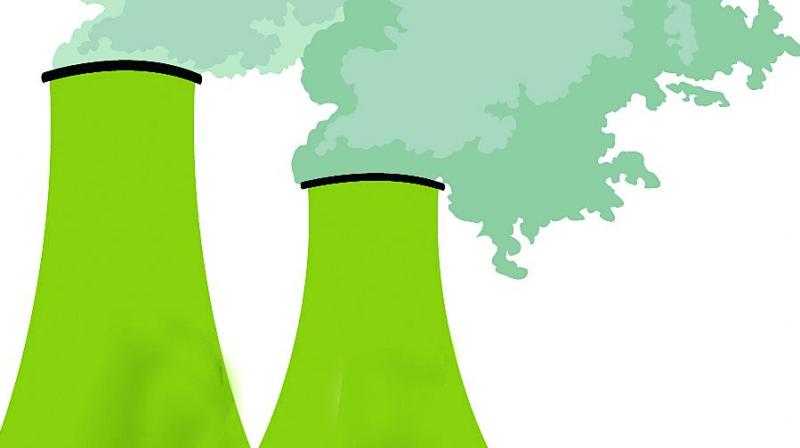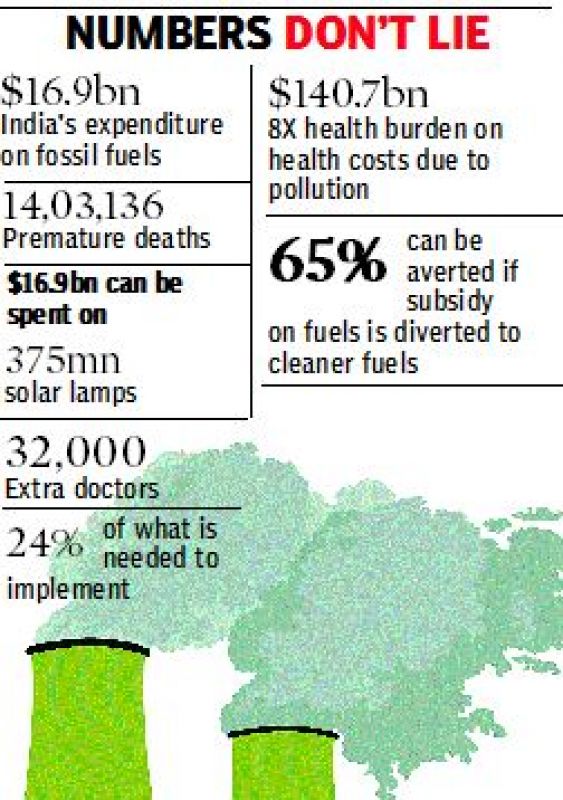Fossil fuel sops hit health
According to a report by Health and Environment Alliance, India spends a $16.9 billion to subsidise fossil fuels.

Hyderabad: It is known fact that fossil fuels pollute the environment and are hazardous to human health. Yet governments across the world continue to subsidise them even when renewable alternatives are available.
A new study reveals startling facts on the many countries across the world that are spending huge amounts on subsidising fossil fuels, despite the fact that it has impacted and spiraled our health care costs.
According to a report by Health and Environment Alliance, India spends a $16.9 billion to subsidise fossil fuels. The major chunk of this money goes towards coal which fulfills half the electricity needs for the country. The report highlights how this subsidy is affecting health by costing Indians $140.7 billion to treat diseases contracted from fossil fuel pollution. Public Health Foundation of India, the organisation that worked on the Indian chapter of the report, highlights the fact that the subsidies have put a heavy load on the air quality in the country.
 Infographic
Infographic
Mr Pradeep Guin, senior research associate, said that a policy on subsidy of fossil fuel could be the way ahead as it could provide funds that could help in getting a Universal Health Coverage for all in India.
But there is some positive news too. The subsidy on LPG which is also a fossil fuel has helped over 40 crore households switch over to clean fuel that doesn’t pollute. While this may be restricted to the urban settings, the transition could be much faster with added initiative of the government.
According to scientists, a lot more needs to be done. “Science is clear that the only solution for climate change is to shut down all fossil fuel usage in the country. If we invest on new coal plants at this juncture then they will run for 30-40 years and continue polluting,” said prof Babu Rao, senior scientist with IICT.
He added that the latest energy policy would increase the emissions by 3-4 times by 2040, which would only spell disaster as far as climate change is concerned.
The state government has not walked the talk on climate change. It has invested in four major coal power plant projects in recent years which could have been clean energy. Work is underway at the 800 MW Kothagudem thermal power plant, the 1.600 MW NTPC Ramagundam unit, the 1080 MW Bhadadri power plant at Khamam and the 4,000 MW Yadadri thermal power plant. But even as energy needs are being met, the cost to human health remains phenomenal.

